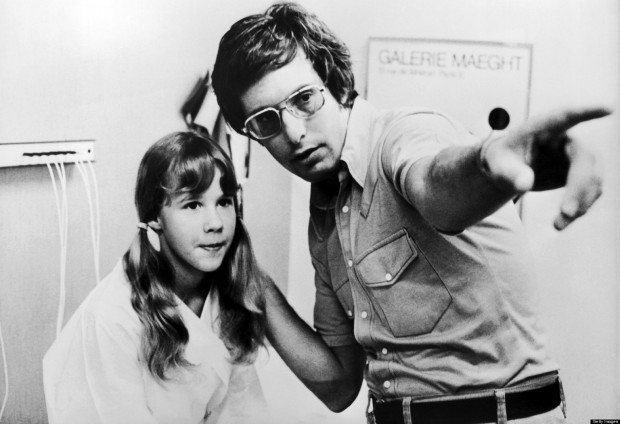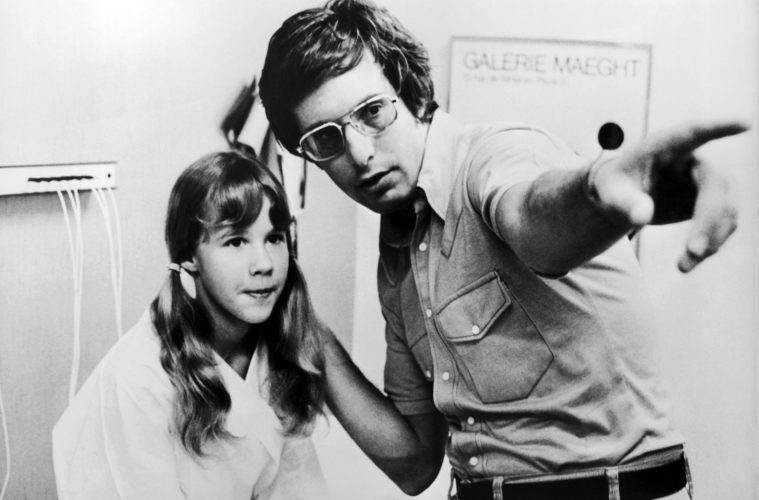
Dailies is a round-up of essential film writing, news bits, and other highlights from our colleagues across the Internet — and, occasionally, our own writers. If you’d like to submit a piece for consideration, get in touch with us in the comments below or on Twitter at @TheFilmStage.
At The Dissolve, Noel Murray takes an in-depth look at the career of William Friedkin:
In William Friedkin’s memoir, The Friedkin Connection, he describes the pivotal moments as a young man when he recognized the potential of the movies and the performing arts: seeing Citizen Kane at a repertory theater; attending a performance of The Rite Of Spring; watching Harold Pinter’s play The Birthday Party; immersing himself in the exciting foreign cinema of the 1950s. Yet when most Friedkin fans think about his movies, Orson Welles and Russian ballet aren’t the first influences that spring to mind. Films like The French Connection, The Exorcist, To Live And Die In L.A., and Killer Joe conform more to Friedkin’s public persona as a tough, self-taught guy who grew up in a working-class Chicago family and skipped college. Friedkin’s work is rarely overtly “arty.” It’s more about immediacy.
Open Culture dug up a Rotten Tomatoes feature in which Werner Herzog names his five favorite films: Freaks, Intolerance, Where is the Friend’s Home, Rashomon, and the original Nosferatu.
Watch a video tribute to Spike Lee‘s unique dolly shots:
At Film School Rejects, Landon Palmer on how it wasn’t Star Wars, but Empire Strikes Back that changed the business of Hollywood:
The story typically goes something like this. In the 1960s, Hollywood had weathered an economic crisis but was losing an ongoing battle with television, so it turned to youth-oriented, smaller projects and gave unprecedented freedom to envelope-pushing directors who worshipped in the churches of Bergman, Kurosawa, Hawkes. Then Jaws (huge) and Star Wars (way huge) came along in the mid-late 70s, imbuing Hollywood with a renewed focus on entertainment spectacle that has, for the most part, dominated its practice since.
Producer Christine Vachon reveals that Todd Haynes has wrapped his upcoming drama Carol, starring Cate Blanchett and Rooney Mara.
At Badass Digest, Britt Hayes questions if Johnny Depp is a good actor:
For years we’ve debated over whether or not Nicolas Cage is a good actor, and that conversation — like his career — has become something of a novelty, to the point where it was narrative joke on an episode of Community this season. We have this conversation about actors like Cage and Keanu Reeves when we should be having this discussion about Johnny Depp, who isn’t a good actor at all, and whose acting has become so unbearable that it gives you pause and makes you wonder if maybe his entire career has been an elaborate ruse or some sort of clever trick, all smoke and mirrors to obstruct his lack of talent, like a magician distracting us from the banal truth behind the gimmick. The difference between Depp and guys like Cage and Reeves is that the latter have something the former doesn’t: a sense of self-awareness about not only their presence, but their career choices and their evolution on screen. When Keanu Reeves shouts “You owe me a life!” in Man of Tai Chi, he does so knowing exactly how absurd he sounds, and it makes it all the more enjoyable for us to watch. We’re laughing with him, not rolling our eyes at him. We’re just as excited when Nic Cage goes Full Cage as we are when he returns to serious acting in David Gordon Green’s poignant and heartbreaking Joe. But we’re never really excited to see Johnny Depp do anything anymore.

